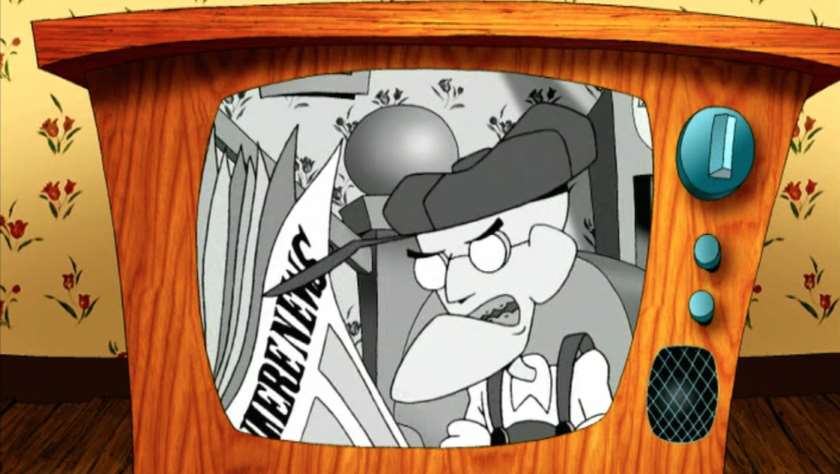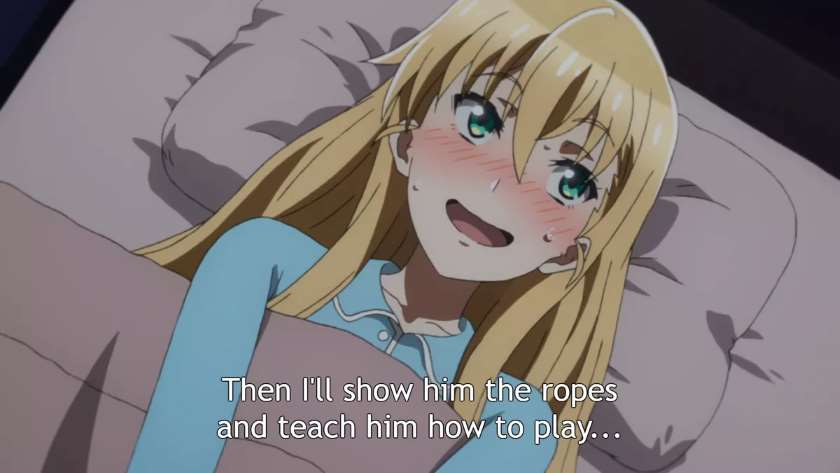Musings On Becoming a Curmudgeon

I wonder if becoming a curmudgeon is an inevitability for the opinionated and pretentious. The true meaning of the word pretentious in particular. I feel that the word’s usage has transformed into “snobbish” or “stuck up” rather than one who pretends to be substantial.
While I do not particularly loathe all things new, I must confess a confusion with what becomes favored among younger audiences. In some cases this is a clear generational gap, such as that between my niece and me. It can also be as short a span as five-to-ten years difference with my… younger peers, I suppose they’d be? A question of whether I’ve grown out of touch simply by being born a few years earlier.
While I’m not afraid the things I love will vanish, there is an apprehension towards what the future may bring. I’d like to think I’m open to change, but at the end of the day I imagine all creatures fear the complete loss of their comfort zone.
The next generations of game developers will no doubt have a very different foundation than I have had growing up. I cut my teeth on the likes of Super Mario Bros., Teenage Mutant Ninja Turtles II: The Arcade Game, and the original Final Fantasy before the likes of The Legend of Zelda: A Link to the Past, Super Metroid, Mega Man X, and Final Fantasy II would forever define my expectations and preferences. I enjoy gear-based progression in action games that have a semi-open linearity. Or perhaps semi-opaque would be a better term? They used to be described as “open” until Grand Theft Auto III redefined the very idea.
Role-playing games, in the meantime, showed me the medium’s ability to tell a serious dramatic story. No longer were they simply electronic toys, but a very real form of all-ages entertainment.
Naturally I tried to help encourage my niece to enjoy these sorts of games when she was young, but I expected too much of a toddler with limited motor functionality. By time she turned eight – roughly the age where my tastes started to truly solidify – I had moved away and held little influence over what she was exposed to. Minecraft and Five Nights at Freddy’s became her favorite games, with the former allowing her absolute freedom and creativity and the latter fascinating her with pages upon pages of lore. My brother had also introduced her to Halo, which would at least give her some hunger for action-oriented games.
Never did I consider how vast the difference was in our foundations until I had gifted her not just The Legend of Zelda: Twilight Princess, but the 2013 Tomb Raider game. At first I simply thought she was an impatient child that lacked the proper observation skills to find hidden objects, solve puzzles, and spot concealed creatures. After much thought, however, I realized that these games relied on a sense of skills that she never before needed in a game. None of her prior experiences ever required her to stop, consider her toolset available, consider the environment, and see how everything interacts in order to open a door.
I thought I had cracked the code. I knew that the traditional Zelda games were going to be a bit more trialsome for her, but perhaps one day I could get her Breath of the Wild. She enjoyed playing Skyrim on her Switch, after all, because she could just wander around and… evidently steal people’s horses. It is a “hardcore” – pardon the term – version of Minecraft in that it is an open world that allows her to do what she wants, and I can think of no better Zelda than the Switch’s open-world launch gem to express such a preference.
Even so, there’s another aspect of her gaming experience I had never considered. Before the Internet the social gaming experience was either with friends on the couch or exchanging strategies, secrets, and rumors at the lunch table. I would reference instruction manuals and issues of Nintendo Power for drawings I wanted to make, but never did I refer to my artwork as “fan art”.
When my niece approached me about Undertale, I thought I might be able to finally have a gateway to introduce her to some favorite role-playing games of mine. I instead quickly began to learn that her love of the game’s own narrative was mixed with her love of community-made materials. Unofficial lore for character variations, original characters (“OCs” for short), and fan-fiction extensions of the universe were all just as canon to her as the original game itself. Never was she seemingly aware of why the game chose its unusual, optionally pacifist game mechanic in the first-place.

This is my niece’s favorite character. I’m not sure if she’s actually in the game or not.
I understand at her age she’s not going to be ready to grasp thematic meaning and concepts in her entertainment. What I cannot help but find abhorrent is that such extension of canon could become universally normalized. It is true I wrote my own share of fan-fiction as a child, but I never thought of it as some elevated work to be considered as valid as the original creation. It was merely a fun form of practice preparing me to craft something of my own instead. The notion that someone would take a story of mine and “improve upon it” with their own preferences and inventions felt – and continues to feel – insulting. Drawing other people’s characters is how I became good enough to try and draw my own, not usurp the creations of others.
We now live in an age of the Internet where the Death of the Author is taken to an extreme. Not only is authorial intent removed, but authorial ownership as a whole. Or so my jerking knee proclaims, eager to find nothing but corruption in every corner of our allegedly crumbling society.
First and foremost, I must address that my niece’s foundations in games are not universal. I witness the sons of my friend Steve playing many “traditional” games that are far closer to what he and I grew up with. No doubt there are plenty of other children learning to love linear titles that emphasize challenge and obstacle courses as he and I did. There are plenty of children that have no interest in the greater fandom of a universe, even if they passionately love the story.
Perhaps more importantly, this notion of fandom usurping not just authorial intent, but authorial ownership can be seen in the legacy of Star Wars. Or perhaps it is less about intent and ownership as much as it is about identity and how fandoms evolve with time and technology. For Star Wars it began with an endless series of expanded universe novels and characters, feeding a market’s hunger for more of a familiar universe regardless of what damage it could do to the original story’s themes and intent. The Internet eliminates the need for creator oversight or publishing houses. Fans can merely expand the universe on their own.
Star Wars is just the most popular example. There was fan-fiction of Star Trek a decade before the iconic yellow text crawled up a movie screen. Fans threatened death upon Sir Arthur Conan Doyle for daring to kill his most famous detective. Why should I be so concerned now?
To suddenly shift lanes, I suppose it’s a desperate effort to perceive why even Western anime fandom seems so susceptible to escapist titillation while regarding narrative works as “pretentious” and “over-rated”. I’ve long since accepted the shift in popular anime being “cute girls doing cute things with a gimmick”, such as the recent Zombieland Saga this season. It certainly looks amusing, but it is also little more than cute girls doing cute things with a zombie gimmick. In other anime, it’s cute girls doing cute things with a trans-dimensional restaurant gimmick. If you’re lucky you get a slice-of-escapist-life such as the anime Gamers!, where a young man that’s awful at video games gets the attention of the most popular girl in school. It just so happens she is an eSports level talent that runs the school’s gaming club. Ordinary joe attracts the extraordinary beauty with extraordinary talents? Sounds like pure escapism to me.

Wait, are we still talking about games? When you said “Smash”, did you mean Smash Bros., or…?
The popularity doesn’t quite bother me. It’s more that it confounds me that these types of shows are now the golden standard while something as recent as Full Metal Alchemist: Brotherhood is regarded as pretentious or over-rated. I can comprehend young adults rejecting Evangelion as pretentious as it loses its escapist appeal at a certain age range, gaining a more sophisticated appeal once you are able to study its social dynamics with that sort of more worldly experience of an adult. Brotherhood, however? That’s absolutely baffling.
It occurs to me that we’re witnessing the shallow type of sitcom show that once dominated Western television now dominate anime, and the type of focused, narrative-driven show that once drew me to anime is now becoming more popular in Western TV. It is like entering bizarro world.
I do not imagine I shall lose my preferred type of anime, and I’m still not ready to trust Western television. I’m just trying to adjust to my old stomping grounds constantly changing. While I can find my old haunts, they’re not always what they used to be, and sometimes they’re filled with all the things I don’t like.
That doesn’t mean what I love is gone, nor the notion that all of it is “infected”. It’s just a strange adjustment that leaves me feeling disconnected from others. Regardless, I am grateful for my relationship with my niece, as it encourages me to not only better understand my own tastes, but the tastes of those drastically different from me.
Here’s to hoping that I will continue to have an open mind regardless of how old I get and how unfamiliar this world becomes.


